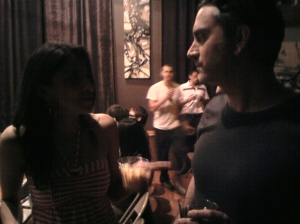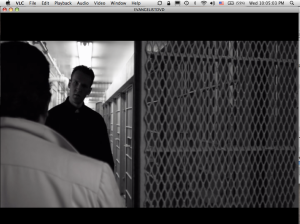YOUR Interpretation
July 28, 2010 Leave a comment
So there’s this fable about blind mice and an elephant. Each mouse feels one part of the elephant. The elephant seems to be something different to each mouse, and this leads to a big argument. No mouse realizes it’s an elephant. Each mouse is too small to be able to perceive the whole picture. The idea is that we all have different points of view, that nobody is right or wrong, and that our perspectives are all relative. We all claim to know the truth, to see objectivity, but in reality we are too limited. An extension of this moral is that we should value all interpretations equally.
This idea is somewhat valid, although intrinsically flawed. An intellectual named Tim Keller explains the flaw in this way. The author, by placing himself in a position where he observes everything, the mice and the elephants, also claims to have the truth and objectivity. The author pretends that he isn’t committing the same folly as the mice. Moreover, by communicating that we cannot attain truth and objectivity, he undermines his whole fable. No matter what, we are always trying to attain the objective truth, even when we claim that we aren’t or can’t.
I bring this up as a preface, because I feel that there is too much weight given to the audience’s interpretation, and not enough value attributed to the artist’s intent.
In my opinion, we should try as hard as possible to understand the artist. We shouldn’t dogmatically claim to know his theme. However, I don’t think we should use the artist’s work as fodder for our own agendas. That’s parasitic. For example, many people insist on discussing the misogyny of “Antichrist.” Maybe that is a minor theme of the film. But what is the film called? Is it called “Abusing Women?” Is it called “I Hate Women?” Is it called “Women Suck?” No, it’s called “Antichrist.” I don’t think the intended theme could be any more clearly defined.
Here is my issue. When we ignore the intentions of the artist, we galvanize the divides between people. We can only become closer as a human race if we listen to each other. A film is a medium to connect two people. A director has something in his mind. He translates it into a movie. And then the viewer translates it into his mind. The film is like a glue for our minds to become closer. For us to understand each other. To learn new perspectives.
I’m not just saying this because I want to encourage you to understand my film. I actively try to understand every director’s intent. I think approaching movies in this way will help you grow more, and bring you closer to people. Does your personal, oh-so-unique interpretation really have that much value? Truthfully, I feel closer to Lars Von Trier, Craig Brewer, Stanley Kubrick, Eric Roehmer, and Quentin Tarantino than most people I’ve met in real life. Not because I’ve fabricated original interpretations of their works, but because I believe I have discovered their intentions.
A friend of mine once told me that if there is “one interpretation” and we all discover it, then the film won’t matter any more and will be “done.” I do believe that’s kind of true. I think debate about interpretations is what will give a movie like “Inception” a really long life. However, I don’t think it’s necessary for a film to have a long life. If you’ve read my posting about “legacy,” you’d know what I mean.












